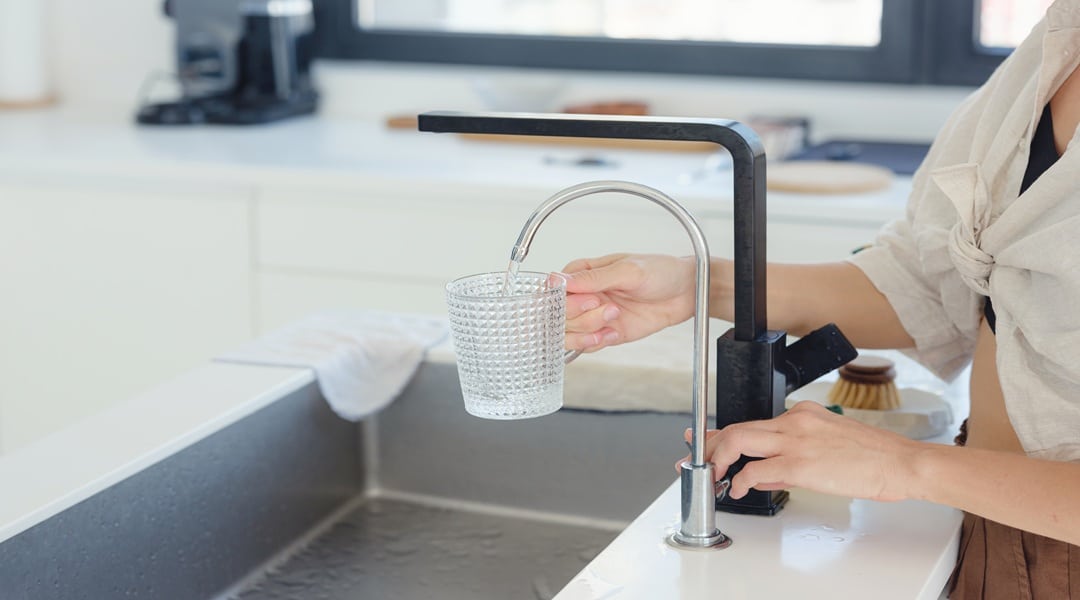You turn on your faucet for a glass of water, trusting it’s clean. But what you don’t see may surprise you. Tap water can carry unseen contaminants that affect your health.
Lead, chlorine, and other substances often lurk undetected in drinking water from municipal sources or wells. Home is where the heart is, they say, it should also be where pure water flows abundantly. A good home filtration system serves as a guardian against these invisible invaders; but first, let’s pull back the curtain to reveal what’s actually coming through those pipes.
Revealing Tap Water Contaminants
You might trust your tap water’s safety, but shocking findings reveal a different story. Despite the measures taken by utilities, contaminants like PFAS, harmful chemicals linked to health issues, are making their way into homes across America. Even with recent EPA updates setting new standards for these substances in drinking water, many areas still record pollutant levels that raise eyebrows and concerns among experts at organizations such as EWG.
Compared to legal limits deemed outdated, current data shows contamination far beyond what is considered safe by newer health-based guidelines; it’s unsettling news indeed. If you’re feeling uneasy about this revelation regarding what flows from your faucet daily, take heart because actionable steps exist right at your fingertips. By visiting MicroPure Water Systems, insights on local water quality await alongside options for safeguarding one’s household from unwanted intruders in our H2O supply.
Filters That Safeguard Your Health
You need to be wary of what’s flowing from your tap. MicroPure Water Systems offers a solution: whole-home water filters that effectively block nasties like lead and mercury, as well as chlorine and pesticides. Testing is critical; start with a home laboratory kit to assess bacteria levels, heavy metals, chemicals, and more in your supply, it’s easy to collect samples yourself for lab analysis within ten days.
Make sure you’re also checking the EPA’s annual consumer confidence reports online for detailed insights into local water quality issues based on where you live. Sign up for digital notifications from your municipal water provider for updates on drinking water safety. They will inform you via social media or email alerts about any new concerns.
Keep connected on platforms like Facebook or LinkedIn too, following pages dedicated to residential water solutions can provide valuable ongoing advice around safeguarding against harmful contaminants.
Choosing the Right Home Filtration System
When selecting a home filtration system, prioritize safety by seeking one that targets Cryptosporidium. For individuals with compromised immune systems, outsourcing filter changes to professionals is safer than risking exposure to trapped pathogens. Remember that an unpleasant taste or odor doesn’t always flag water contamination; conversely, clear and neutral-tasting water isn’t guaranteed to be safe.
Testing your tap water forms the cornerstone of informed filter selection: this reveals whether you’re combatting germs or chemicals, or if you even need extra purification at all. Examining labels on products like MicroPure Water Systems helps pinpoint which filters tackle bacteria versus viruses or specific contaminants such as lead and copper. Choose NSF-certified options for cyst reduction with pore sizes below 1 micron to remove parasites like Giardia.
Reverse osmosis devices address both microbial threats and chemical pollutants.
You’re sipping tap water, but do you know what’s inside? It might contain minerals beneficial for health or unwanted contaminants that slipped through cracks in the system. Chemicals like chlorine purify your water, yet traces of pesticides and metals may linger.
Unseen microorganisms also swim about, calling this liquid their home. MicroPure Water Systems can help you test and ensure your drinking water is safe, because when it comes to health, knowing exactly what flows from your faucet matters just as much as staying hydrated does.



